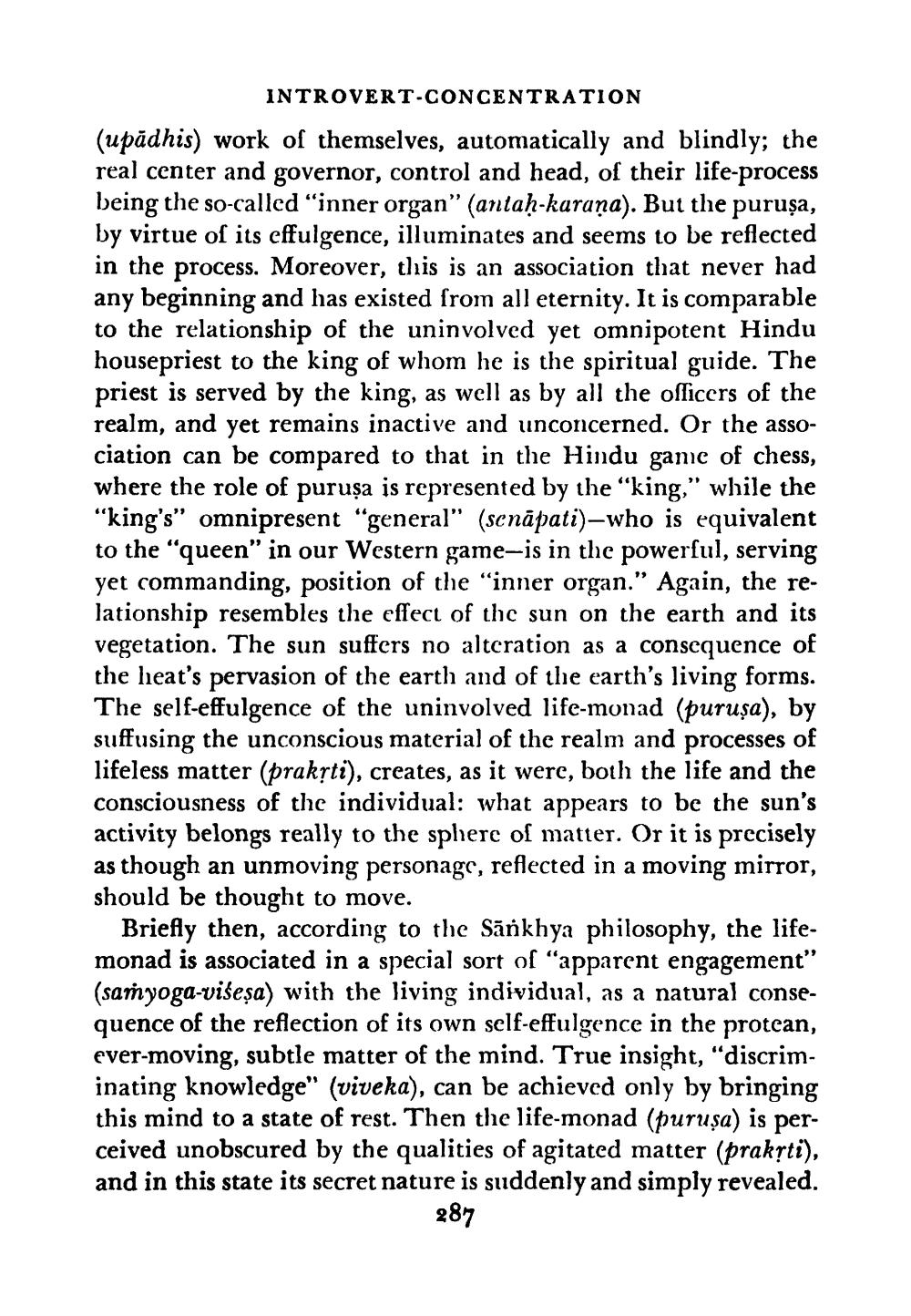________________
INTROVERT-CONCENTRATION (upādhis) work of themselves, automatically and blindly; the real center and governor, control and head, of their life-process being the so-called “inner organ” (antaḥ-karaña). But the puruşa, by virtue of its effulgence, illuminates and seems to be reflected in the process. Moreover, this is an association that never had any beginning and has existed from all eternity. It is comparable to the relationship of the uninvolved yet omnipotent Hindu housepriest to the king of whom he is the spiritual guide. The priest is served by the king, as well as by all the officers of the realm, and yet remains inactive and unconcerned. Or the association can be compared to that in the Hindu ganic of chess, where the role of puruṣa is represented by the "king," while the “king's” omnipresent "general" (scnāpati)—who is equivalent to the "queen" in our Western game-is in the powerful, serving yet commanding, position of the winner organ." Again, the relationship resembles the effect of the sun on the earth and its vegetation. The sun suffers no alteration as a consequence of the heat's pervasion of the earth and of the earth's living forms. The self-effulgence of the uninvolved life-monad (puruṣa), by suffusing the unconscious material of the realm and processes of lifeless matter (praksti), creates, as it were, both the life and the consciousness of the individual: what appears to be the sun's activity belongs really to the sphere of matter. Or it is precisely as though an unmoving personagc, reflected in a moving mirror, should be thought to move.
Briefly then, according to the Sārkhya philosophy, the lifemonad is associated in a special sort of "apparent engagement" (samyoga-viseșa) with the living individual, as a natural consequence of the reflection of its own self-effulgence in the protean, ever-moving, subtle matter of the mind. True insight, "discriminating knowledge" (viveka), can be achieved only by bringing this mind to a state of rest. Then the life-monad (puruṣa) is perceived unobscured by the qualities of agitated matter (praksti), and in this state its secret nature is suddenly and simply revealed.
287




